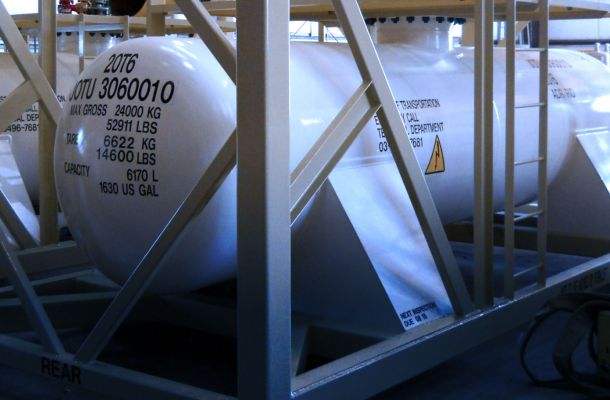Using an SBA Loan to Buy a Franchise

First Financial Bank
If purchasing a franchise is the right choice for you, SBA loans are a financing option to consider.
Buying a franchise grants you many of the benefits of starting an independent business. As with any decision, there are trade-offs.
Advantages of Buying a Franchise vs. Starting Your Own Business
Do you dream of becoming a business owner, but the notion of creating a business from scratch is daunting or doesn’t quite align with your skills and career goals? Purchasing a franchise may be a good fit for you.
Some of the advantages of buying a franchise include:
1. Acquiring a business name with an established reputation and brand awareness
If you start your own business, you’ll have to develop your brand, build and implement marketing plans to create brand awareness from scratch, and work to bring in new customers, all without an established reputation. You can skip this step entirely by purchasing a franchise. Many consumers will already be aware of your business name and products or services. At least a portion of your marketing will occur at the company level to attract new customers to the brand’s products or services. This base of existing potential customers can be a reassuring perk and shorten your time to profitability.
2. Being provided a tested system and business model
Franchises have a demonstrated track record of success. From the get-go, you’ll be provided with all the details you need to put your operations in place. You won’t have to wonder whether the business model will work because it already has. You won’t have to research suppliers and establish vendor relationships because the supply chain is typically part of the franchise’s established processes. Product or service offerings are defined along with the pricing guidelines. Marketing and sales collateral are already designed. With all of these elements provided, the upfront investment may feel like it is more expensive than creating a business from scratch, but with the economies of scale for the supply chain and marketing, this foundation can provide a strong start and long-term stability for new franchisees.
3. Leveraging an existing training program and technical support
Franchises provide robust training programs and technical support to get franchisees started. This gives you access to the materials so that both you and your employees can learn what you need to do your jobs. The technical support team can answer those questions you may have and clarify anything you may not quite understand. Together, you gain the support needed to operate a prosperous business – with no need for trial and error.
4. Transitioning to retirement may be easier
When retirement comes calling, franchisees may have a simpler path forward than independent business owners. You can sell your franchise to another aspiring franchisee using the same benefits that attracted you to the franchise, such as brand recognition and established systems, to help drive the sale.
The Trade-Offs
With every choice you make, there are always trade-offs. Those advantages to buying a franchise may be the same reasons it may not be a fit for you:
1. The brand may evoke strong feelings in the marketplace – and some may not be positive
Many established brands are well-known, beloved names. That history can also provide the opportunity for perceptions and misconceptions to arise that drive strong impressions of the brand. As a franchisee, your business will be viewed through the same lens as they view the brand or franchisor.
2. The established systems and business model can be constraining
As a franchisee, you must follow the guidelines for branding and operations established by the contract. You may feel restrained by these rules if you value creativity and autonomy. Though you may be trading away creativity, you are gaining a pathway to success marked with specific guideposts.
3. The training program may not be flexible enough to meet your specific needs
The standardization of the training programs may feel a bit like one-size-fits-all clothing: it doesn’t actually fit anyone particularly well. You and your team may not find it particularly useful for your franchise location, and you may need to adapt it to fit your needs.
4. The reasons you bought the franchise may now make it difficult to sell
Brands have a life cycle. By the time you are ready to retire, the brand may no longer be as attractive to potential buyers or command the same type of investment that you initially made.
But, you may find that the brand has grown in popularity – you just don’t know today.
With the trade-offs in mind, does purchasing a franchise sound like the right choice for you? If so, you’ll want to look at SBA loans to fund your plans.

What is an SBA Loan?
SBA loans are loans guaranteed by the U.S. Small Business Administration and provided by SBA Preferred Lenders, like First Financial Bank. They’re designed to help small businesses secure funding by reducing lender risk. The SBA may guarantee up to 75% of the loan amount for small business owners, eliminating the need for collateral on that portion of the loan. Borrowers will still need to provide collateral for the remaining portion.
How to Secure an SBA Loan for a Franchise
If you’re looking to buy a franchise and are interested in securing financing with an SBA loan, you’ll need to:
Step 1: Verify your eligibility.
Many, but not all, franchises are eligible for an SBA loan. The SBA states that to be eligible for an SBA loan, the franchisee must be able to profit from efforts akin to ownership.
Step 2: Find your lender.
To secure an SBA loan, find a lender who belongs to the SBA Preferred Lender Program. First Financial Bank’s Small Business loan officers have extensive experience with SBA loans and can provide you with the guidance you need to navigate the process.
Step 3: Prepare your paperwork.
In preparation for the meeting with your lender, you’ll need to accumulate and organize information about the franchise you are planning to purchase and your financial history. This includes:
- A copy of the signed franchise agreement
- Resumes for you and any business partners, including personal financial statements, personal credit history, and collateral assets, 3 to 5 years of personal tax returns, credit reports, bank statements, and other financial records
- Documentation for your collateral
- The original business license (if buying an existing franchise location)
- A copy of any licenses or leases
In addition to reviewing your paperwork for your credit-worthiness, the SBA also expects the lender to assess whether the franchisor’s offering is worth the investment. The underwriter must review the Franchise Agreement and the Franchise Disclosure Document (FDD) and any other credit information provided by the franchisor that expresses the number of failed franchisees and cash flow projections. The lender will also need to determine if any aspects of discrimination exist or any other eligibility issues exist.
Next Steps
Whether you are buying a franchise or starting up a new business of your own, the first step is always to do your research. One resource that can help you assess a franchise business’s feasibility is the Franchise Guidance from the Federal Trade Commission (FTC). You’ll also want to talk with current franchisees to gain their view of the franchisor. The lender can help you put the information you provide into perspective for your eligibility for an SBA loan.




